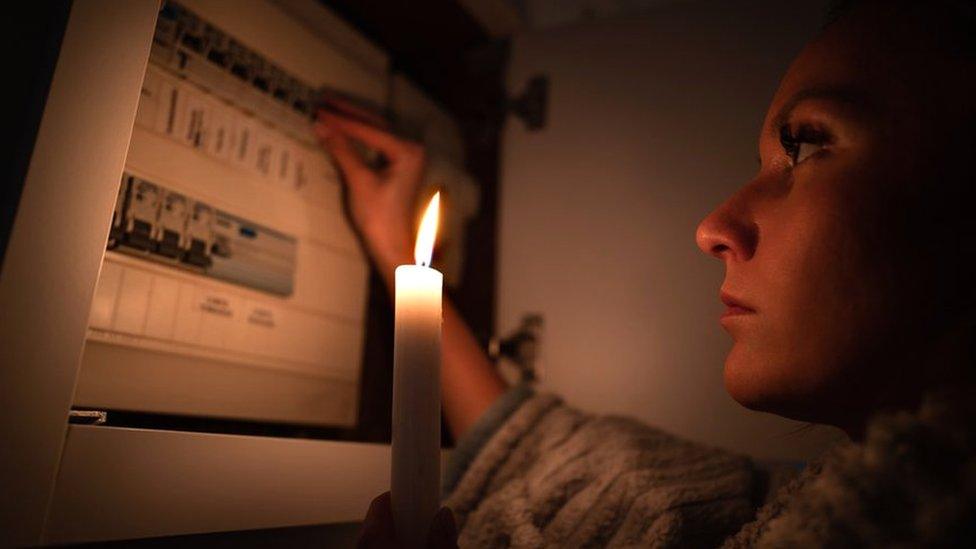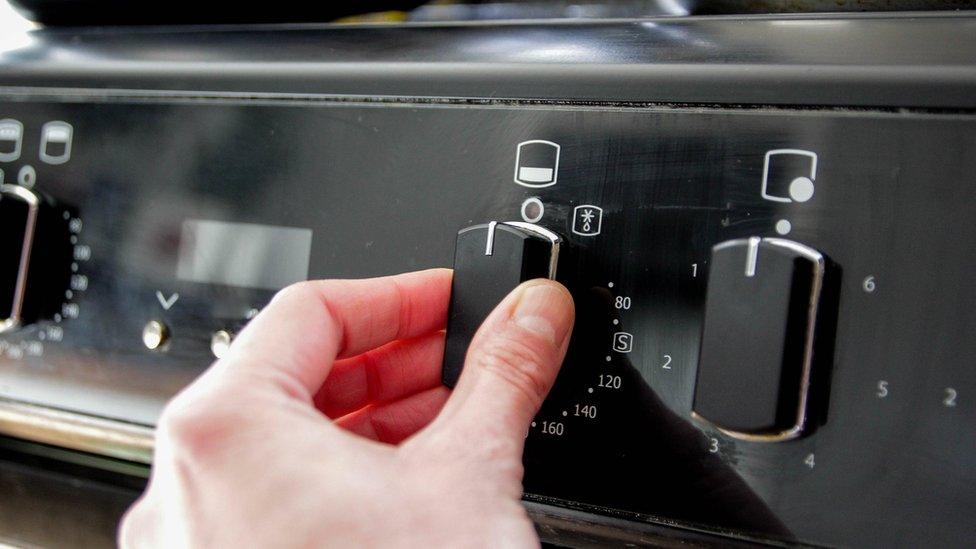Liz Truss: Ministers working on energy-saving plan
- Published

The government is working on a plan to help individuals and businesses use energy more efficiently, Prime Minister Liz Truss has said.
On Sunday, a minister told the BBC a public information campaign to help people cut their energy use was pulled by No 10 on the grounds of cost.
But the government now appears to have rowed back on that position.
Energy regulator Ofgem has warned of "a significant risk" of gas shortages this winter due to the war in Ukraine.
The government has sought to limit soaring energy costs for households following the invasion by a price cap on energy, which would keep the average bill to around £2,500 a year.
To help people save energy and cut costs, the Department for Business, Energy and Industrial Strategy (Beis) had been preparing plans for a public information campaign.
But the PM was previously reported to have been "ideologically opposed" to the campaign, fearing it would be too interventionist.
On Wednesday, Downing Street said the Beis plans would now be incorporated into an existing scheme.
During Prime Minister's Questions, Ms Truss was urged by Conservative MP Guy Opperman "to have a nationwide mailout campaign" on reduction of energy use.
In response the PM said Mr Opperman was "absolutely right".
"I know the energy secretary is working on a plan to help companies and individuals use energy more efficiently. We're also working on this across government," she said. "I hope we'll be able to start this going in Number 10 straight away."
The prime minister's official spokesman said the government was considering how to "further expand" the existing "help for households" website, which includes advice on cost-of-living support and improving energy efficiency.
Cabinet minister Nadhim Zahawi told the BBC on Sunday that a public information campaign would have cost up to £15m.
He said such a campaign was unnecessary because similar work was already been done by National Grid and Ofgem.
The disruption of gas flows from Russia to Europe has led to concerns about energy supplies this winter.
Although the UK is far less reliant on Russian gas than mainland Europe, it could still suffer knock-on effects from shortfalls in overall supply.
In a worst-case scenario National Grid, which manages Britain's electricity and gas supply, has warned households could lose power for up to three hours at a time this winter if gas supplies run extremely low.
Although the company said this was "unlikely" it said supply interruptions were a possibility if the energy crisis escalates.
Related topics
- Published9 October 2022

- Published7 October 2022

- Published3 October 2022

- Published23 November 2023
